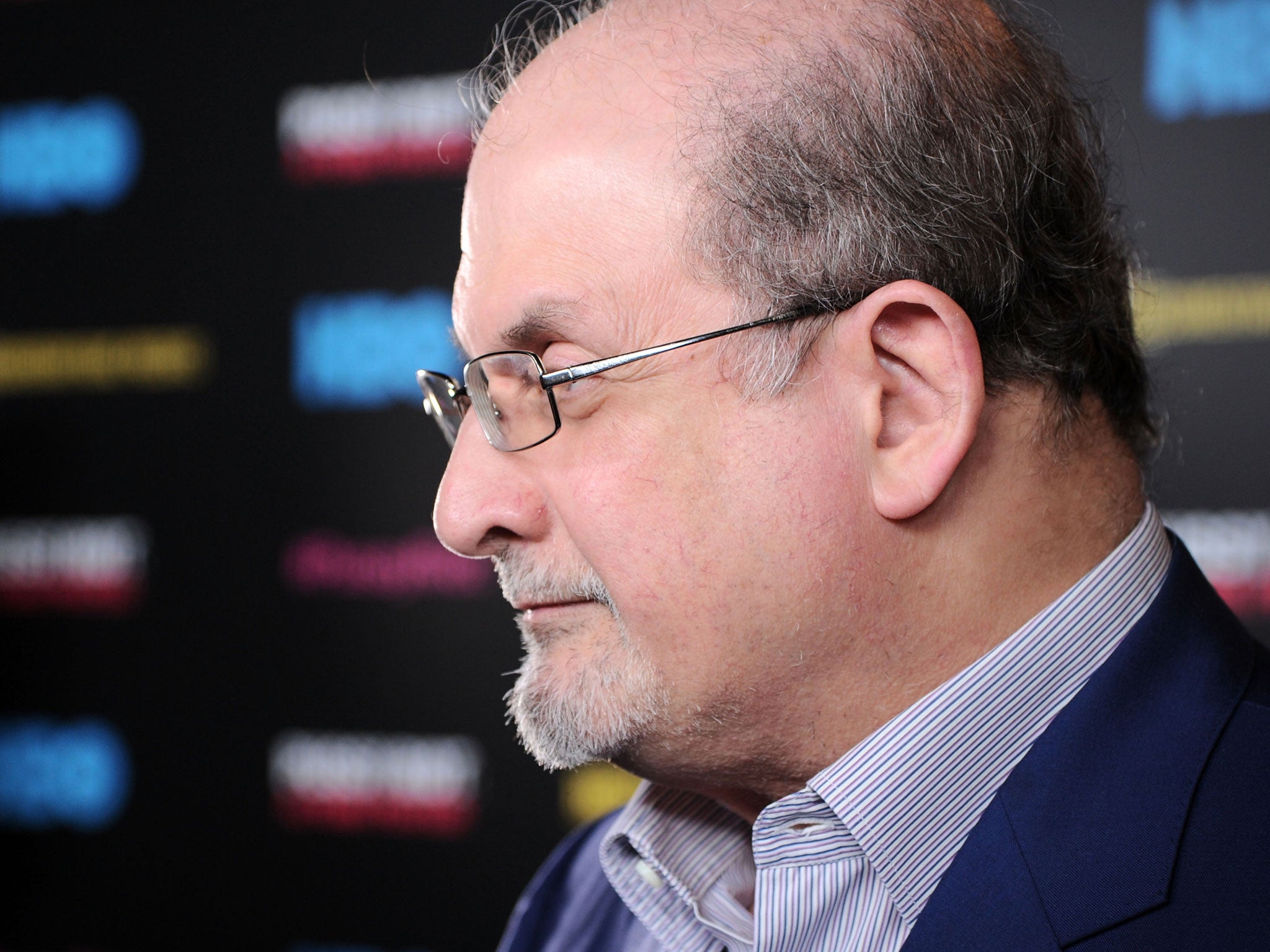Salman Rushdie: We're all too offended now
'Satanic Verses' author attacks rise of religious and political tribalism that makes people define themselves by what they hate

Your support helps us to tell the story
From reproductive rights to climate change to Big Tech, The Independent is on the ground when the story is developing. Whether it's investigating the financials of Elon Musk's pro-Trump PAC or producing our latest documentary, 'The A Word', which shines a light on the American women fighting for reproductive rights, we know how important it is to parse out the facts from the messaging.
At such a critical moment in US history, we need reporters on the ground. Your donation allows us to keep sending journalists to speak to both sides of the story.
The Independent is trusted by Americans across the entire political spectrum. And unlike many other quality news outlets, we choose not to lock Americans out of our reporting and analysis with paywalls. We believe quality journalism should be available to everyone, paid for by those who can afford it.
Your support makes all the difference.The Booker Prize-winning novelist Salman Rushdie spoke out against a new "culture of offendedness" yesterday, saying that people increasingly "define ourselves by hate".
Speaking to a sellout crowd on the opening day of the Edinburgh International Book Festival, the Midnight's Children author said: "I do think that one of the characteristics of our age is the growth of this culture of offendedness. It has to do with the rise of identity politics, where you're invited to define your identity quite narrowly – you know, Western, Islamic, whatever it might be."
He continued: "Classically, we have defined ourselves by the things we love. By the place which is our home, by our family, by our friends. But in this age we're asked to define ourselves by hate. That what defines you is what pisses you off. And if nothing pisses you off, who are you?"
His comments came in a week in which internet hatred has topped the agenda. Rushdie has first-hand experience of being a figure of hate after living under a fatwa for a decade after the publication of The Satanic Verses in 1988.
He ascribed the new hatred to the fall of Communism and the rise of religious fanaticism, among other things. "Instead of there being one Iron Curtain, there became lots and lots of little enclaves with people fighting to the death about their own little mindset or their own tribalism. And then religious fanaticism happened, which is not only Islamic. In India, there is the rise of Hindu nationalism, and in America the increased power of the Christian church."
Referring to the The Satanic Verses, Rushdie said that he did not believe that a book had the power to offend. "Conservative Muslim leaders had not liked any of my books. So I expected them not to like it. And my view was, 'So what?' It's not compulsory to read a novel. If you don't want to read a book, don't read it. If you start reading a book and you don't like it, you always have the option of shutting it and at this point it loses its capacity to offend you."
He added that many of those involved in protests over the book, in which copies were burned in the streets of Bradford, now regretted it. "One of the few things that I thought was cause for optimism, if you like, was that when it was the 20th anniversary of the Bradford book-burning and all that, British newspapers interviewed a lot of the people who back in the day were involved in organising those things. Everybody that was interviewed regretted it. Some of them regretted because they thought it was tactically bad. That it had backfired and hadn't got them the results that they wanted. Some of them accepted the free speech argument. But what was interesting was that they all said, 'We wouldn't want to do something like that again.'"
The author also talked at length about having dinner with Thomas Pynchon, the world's most famous literary recluse. Rushdie was invited to dine with Pynchon after he wrote a review of the latter's 1990 novel Vineland in The New York Times.
"Thomas Pynchon looks exactly like Thomas Pynchon should. He's very tall and he wears lumberjack shirts and blue jeans." Although the two authors enjoyed "a very long, very affable evening" together, eating and talking until 3am, they have not seen each other since, he said.
Join our commenting forum
Join thought-provoking conversations, follow other Independent readers and see their replies
Comments